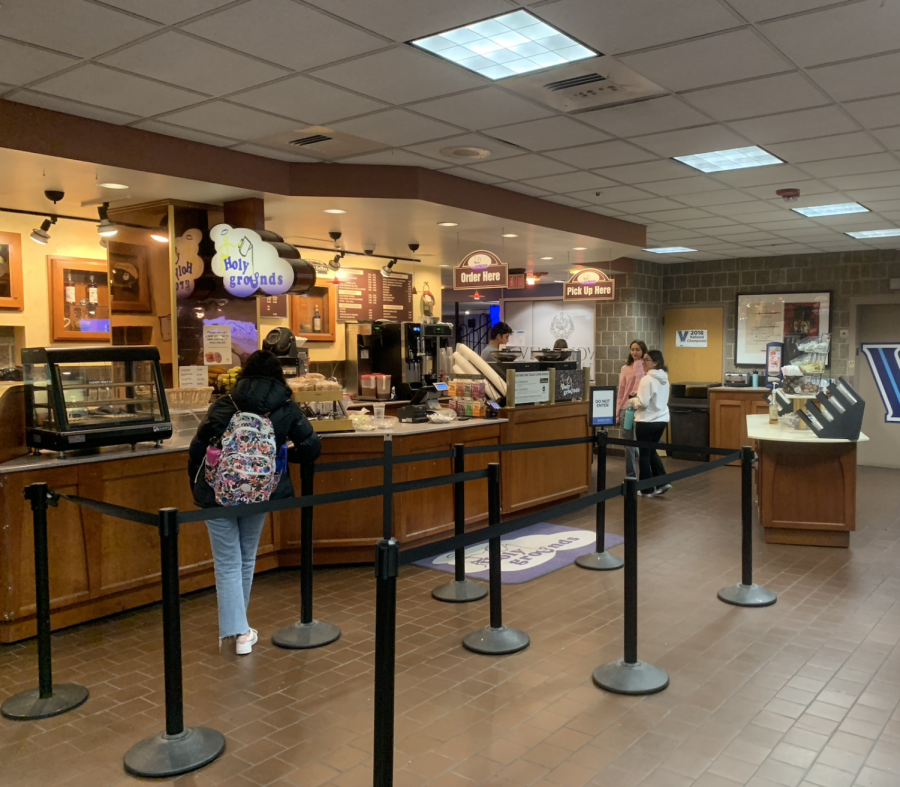A Look Into The Effects of Caffeine
Colin Beazley/Villanovan Photography
Holy Grounds is a popular location for students to fuel up on caffeinated beverages.
February 15, 2023
In desperate need of energy, you reach for your cup of coffee or energy drink, or whatever will get you through that next lecture, exam or intramural game. I am sure that at one time or another, all college students have experienced such a craving for caffeine. While you may think that a cup of coffee is your saving grace, it actually comes with some detrimental effects that tend to go unnoticed. According to the authors of “Caffeine Intake and Mental Health in College Students,” it has been concluded that, while caffeine can provide you with benefits such as “increased attention, alertness, mood elevation and increased cognitive function,” it causes more harm than good. For example, did you know that every time you rely on caffeine to support your day over other natural factors, it is working to increase your levels of anxiety and depression?
Additionally, because caffeine is a stimulus, students are essentially training their bodies to develop sleeping disorders. Katie McCallum, author of “Caffeine & Sleep: How Long Does Caffeine Keep You Awake?,” discusses how caffeine accomplishes the magnificent feat of keeping one awake.
“[Caffeine] blocks sleep-promoting receptors in your brain called adenosine receptors,” she said.
For college students, a good night’s sleep is extremely important because, in reality, this will help get them through the day in a much healthier way than drinking a large cold brew from Holy Grounds. Another harmful attribute of caffeine, according to the authors of “Caffeine Intake and Mental Health in College Students,” is its correlation to higher levels of anxiety and certain depressive symptoms. With the constant stress and expectations placed on college students, the simple consumption of caffeine is an unnecessary complication to add to the already complex lifestyle of a college student.
It is frightening to be told to stop relying on caffeine. It sparks questions such as how to stay awake in class and how to function without a daily dose of caffeine. However, there are countless ways one can experience the same benefits of caffeine while eliminating the possibility of harming themself in the process. For example, according to registered dietitian Carlene Thomas, the key to obtaining energy is all about what you are consuming. Thomas suggests eating various nuts and berries and drinking lots of water throughout the day.
“Water can help you feel more alert, especially since dehydration causes fatigue,” Thomas said.
Additionally, berries are naturally sweet and have the potential to give you a quick burst of energy, similarly to the shots of espresso in your latte. But, if you crave energy that is going to last longer than say the quick burst provided by berries, Thomas suggests eating nuts.
“[Nuts] keep you full and energized longer than other foods since they balance carbohydrate fuel with the satiating and blood-sugar-balancing effects of fat and protein,” he said.
Based on such valuable information and insight, the next time you go to grab your daily dose of caffeine to get you through the tedious life of a college student, turn instead to a glass of water and a handful of nuts or berries for a more natural and holistic experience.







